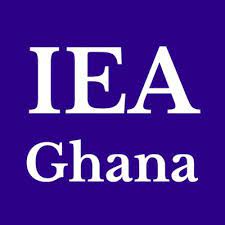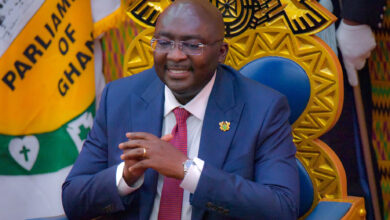IEA to government: Adopt IMF-like measures to avoid going there

With the economy buckling under the weight of internal and external pressures – rising inflation, a fast-depreciating local currency, foreign investor attrition – as well as heightened calls for a return to the International Monetary Fund (IMF) for assistance, government would be better off adopting, on its own, measures which the Bretton Wood institution is known to prescribe under such circumstances.
This is according to the Director of Research at the Institute of Economic Affairs (IEA), Dr. John Kwakye, who believes self-administering such austere actions would ensure the state attains policy credibility – without which the economy is likely to continue in a free-fall and heighten concerns over the nation’s ability to meet its obligations.
“Government need not go to the IMF if it can adopt some of the key measures that the IMF is known to prescribe for members seeking its assistance… If we do not take these steps and restore investor confidence in our credibility, it will snowball to a point beyond government’s control,” he said in an emailed response to the B&FT.
Failure to do so, the economist added, will see that nation eventually return to the IMF for the 17th time: a move, he adds, that would lead to reduced confidence by the international community in the country’s ability to manage its affairs.
Tough menu
Topping the ‘menu’ of proposals for the state to adopt in this regard is resolving the ongoing impasse over the E-levy in parliament, with a proposal to split the levy between telecommunication service providers and end-consumers.
“Government must work to resolve the current budget stalemate in parliament over the E-levy as a matter of urgency. To that end, we suggest splitting the proposed rate of 1.75% between telcos (1%) and consumers (0.75%). We believe this is a compromise that both the majority and minority can accept,” Dr. Kwakye said.
Further measures, ranging from short-term to long-term, are focused on revenue generation. These include a swift passage of the Tax Exemptions bill to reduce the scope and scale of exemptions as well as enforce tax compliance, especially by professionals.
Others are introducing segregated corporate tax ranging from the current level of 25% for indigenous companies to 35% for foreign companies, as well as a temporary ‘windfall tax’ of 10 percent on ‘excess profits’ of mining companies, oil companies, telcos and banks.
“They should also abolish the current import benchmark discount of 30% for general goods and 10% for vehicles,” he added.
Expenditure diet
Government must introduce urgent measures to reduce expenditure, which level and composition remain problematic, Dr. Kwakye added.
The IEA’s Director of Research also proposed restructuring and downsizing the ministries from the current 30 to a maximum of 20 – a move that would consequently see the number of ministers and their deputies drop from 86 to 56 – in addition to reducing salaries of the Executive by 20%.
Following the announcement in January of a 20% cut to the budgets of ministries, departments and agencies (MDAs), as part of measures to ensure fiscal consolidation, Dr. Kwakye called for its enforcement.
With the Minister for Finance disclosing that the Free Senior High School (SHS) had cost the nation GHC7.62billion as of July 2021, Dr. Kwakye called for the introduction of a government-parent cost-sharing arrangement.
Other steps proposed to reduce the quantum of expenditure include scrapping the Nation Builders Corps (NABCO) programme; freezing allowances for nursing and teacher trainees; and imposing a temporary freeze on recruitment into the public service.





